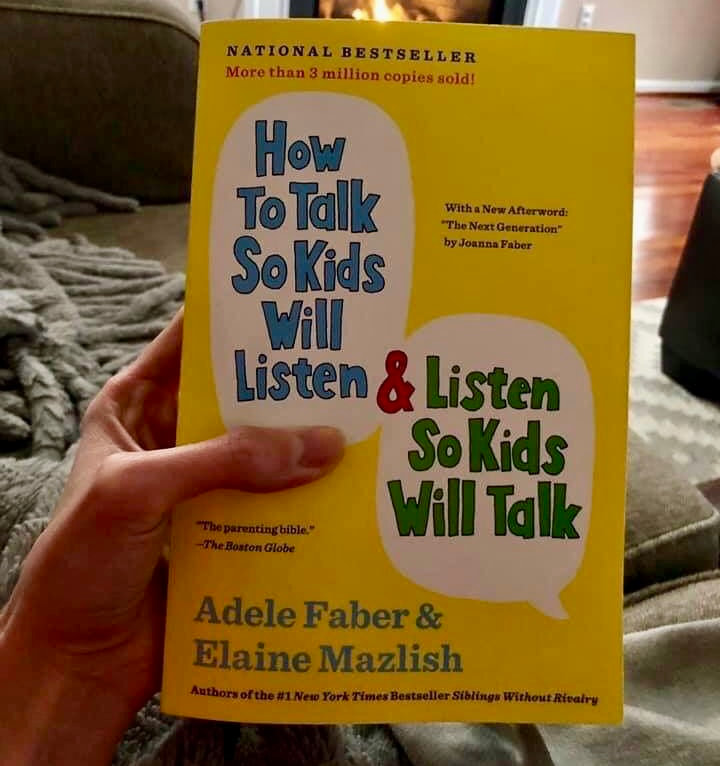"How to Talk So Kids Will Listen & Listen So Kids Will Talk" by Adele Faber and Elaine Mazlish is one of our all time favorite books that provides practical communication strategies for building positive relationships with children.
Here are 10 lessons from the book:
1. Acknowledge Feelings: Encourage open communication by acknowledging and validating your child's feelings. When children feel heard and understood, it creates a foundation for positive interaction.
2. Avoid Denial of Feelings: Instead of dismissing a child's emotions, the book advises acknowledging and accepting their feelings. Denying feelings can lead to frustration and communication breakdowns.
3. Give Information in Manageable Parts: Break down information into manageable parts to help children better understand and process. This approach can make instructions or explanations more accessible and effective.
4. Use Alternatives to Punishment: The book advocates for using alternatives to punishment, such as acknowledging feelings, offering choices, and problem-solving together. This helps children learn from their experiences without feeling punitive.
5. Offer Choices: Providing children with choices empowers them and encourages a sense of autonomy. It also helps prevent power struggles and fosters cooperation.
6. Describe, Don't Label: Instead of labeling a child with negative terms, describe their behavior or actions. This approach helps avoid a defensive reaction and encourages positive change.
7. Use "I" Statements: Express your own feelings and needs using "I" statements. This helps prevent blaming and fosters a collaborative atmosphere where both parent and child can share their perspectives.
8. Encourage Autonomy: Support your child's growing independence by giving them opportunities to make decisions and solve problems. This builds their confidence and decision-making skills.
9. Engage in Active Listening: Practice active listening by fully focusing on what your child is saying without interrupting. This demonstrates respect and encourages children to share their thoughts and feelings more openly.
10. Problem-Solve Together: Instead of imposing solutions, involve children in the problem-solving process. Collaborative problem-solving teaches valuable skills and helps children feel more in control of their lives.
These lessons from "How to Talk So Kids Will Listen & Listen So Kids Will Talk" provide a foundation for effective and respectful communication between parents and children. Applying these principles can contribute to building positive relationships and fostering a supportive family environment.
You can also get the audio book for FREE using the link below. Use the link to register for the audio book on Audible ot have a listen:
https://amzn.to/3SwiOZ3
Stay tuned for more pics and projects soon!


 RSS Feed
RSS Feed